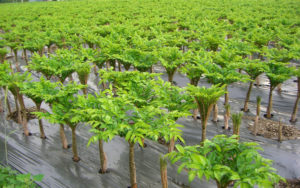
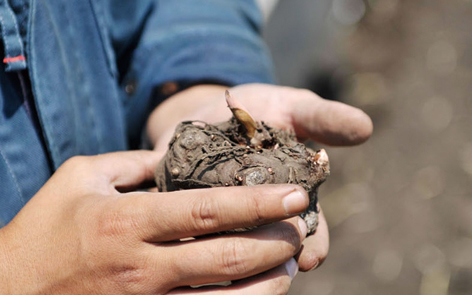
Shirataki is a type of Japanese noodle made from fiber derived from the tuberous root of the konjac plant. These noodles, which are typically long and thin with a translucent white or brown colour, have long been a feature of Japanese cuisine. More recently, shirataki noodles have gained in popularity as a replacement for other types of noodle such as spaghetti. This is because these noodles tick all the boxes when it comes to healthy eating, being fat-free, low-carb, and low in calories. In addition, shirataki noodles are great at absorbing flavors and add a unique texture to dishes, making them a great addition to any cook’s repertoire.
*Mitoku Organic Shirataki comes in packets containing a watery liquid that needs to be drained and rinsed off before the noodles are used.
-
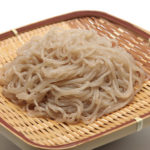
Organic Whole Shirataki Noodles
Whole shirataki noodles are an unrefined variety made with the whole konjac root to ensure that none of its goodness is lost in production. Nothing artificial is added, so the final product reflects the great quality and natural taste of the ingredients. Whole shirataki noodles have a higher fiber content than the refined white variety.
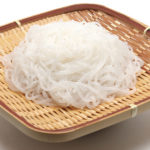
Organic Shirataki Noodles
White shirataki noodles come in several types: noodles, bundled noodles, and tagliatelle-style thick noodles. The traditional production methods used by our producer are time and labor intensive, but result in an authentic, timeless taste.
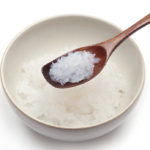
Organic Rice Konjac
Besides noodles, Mitoku offers additional products made from konjac root, in a variety of shapes, to widen the scope of use for this wonderfully healthy food. This grain-shaped variety is ideal for enjoying as a low calorie alternative to rice. Mix with brown rice to add volume without adding calories, creating dishes that are intensely satisfying. Use instead of rice or orzo pasta in fried rice, rice-based salads, or as an accompaniment to Japanese curry.
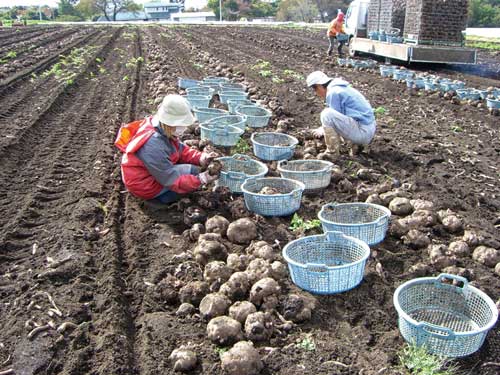
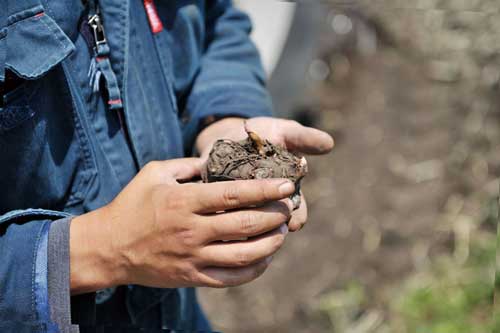
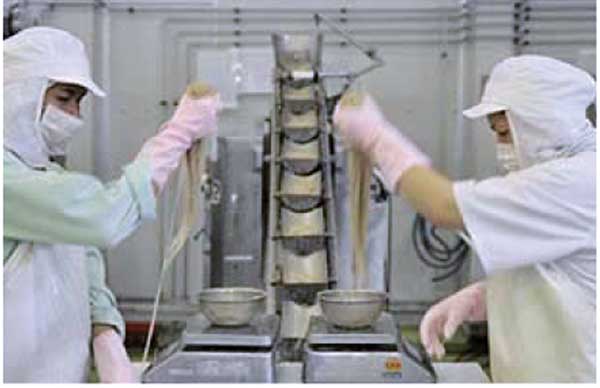
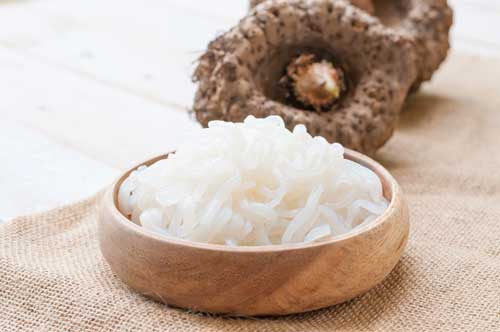
Organic farming is the best way to grow nutritious, delicious konjac
It takes three years for our organic farmer to grow their konjac. Production begins in spring, when the seeds are planted. Come fall, the young plants are dug up and brought indoors until springtime, then replanted again. This painstaking process is repeated each year until the tubers are large and robust, weighing in at 2~3kg. This is one of the key elements in developing the konjac’s flavor.Konjac tubers are vulnerable to the cold, prone to rot, and extremely delicate. As such, they will not thrive in anything other than optimal conditions and must be kept away from strong light, wind, overly dry conditions, and locations with poor drainage. By placing faith in the natural vitality of their crops, while giving those crops the unceasing and tender care that they require, our producer utilizes natural farming techniques to create organic shirataki of the highest quality. This is done by combining traditional farming practices utilizing the natural power of sun and soil with modern knowhow and technology.
The joy of a harvest after three years’ hard work
Good konjac is essential to make good shirataki. That is why our producer uses only high-quality, organic produce. To showcase the natural flavors of the konjac, our producer insists on doing all of the processing themselves, using coagulant derived from natural limestone. In this way, we are able to deliver shirataki noodles with the same home-grown taste that has long been enjoyed by farming families in Japan.
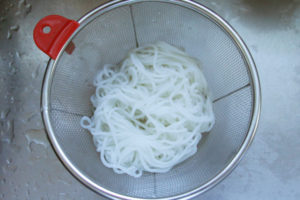
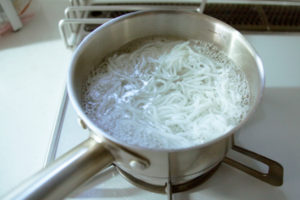
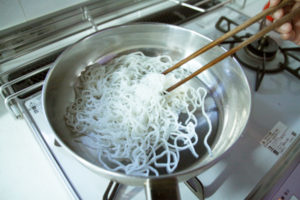
Shirataki noodles are so simple to prepare, yet this preparation will make a big difference to your cooking. First drain the noodles in a sieve then rinse, boil for 1-2 mins, or fry until the water has evaporated. Once cooked, these versatile noodles can be used instead of pasta or other noodle varieties in your favorite dishes, such as Italian, Chinese, Japanese, or any other cuisine. They also make for a quick and easy addition to daily dishes such as soups.


